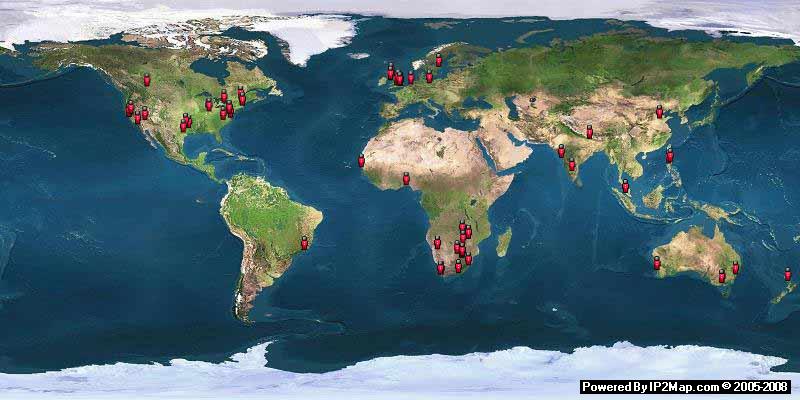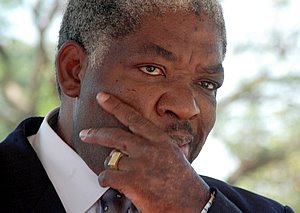| Zimbabwe: Mbeki a scapegoat for MDC failures |
| May 12, 2007 12:36 PM |
| MORE and more people are facing the brutal reality that the effective national response to Central to this national task is the reality that Zimbabweans under the leadership of their political parties and civil society organisations must organise themselves to have dialogue among themselves to find means to resolve their country's problems. This is the case despite their different and antagonistic socio-political and economic interests. Any political party which is in practice committed to the resolution of the national problems must struggle to bring together the people of its country to discuss strategies and tactics essential for the resolution of the national question. If the people of a particular country through their political parties have failed to execute this national task, they should not blame people of other countries. They should blame themselves and their individual and organisational leaders. The political parties of The key reason behind this failure is the lack of serious well-organised opposition to the present political governance in the country. As a result of this failure, the MDC and its internal and external supporters have blamed political leaders of This is their means to hide the profound and unique practical and theoretical weakness of the MDC. The task of African political leaders and the people of other African countries through their organisations is to support Zimbabweans in their efforts to resolve their national problems. While the MDC has sustained the politics of opposition in The two MDCs' lack of leadership and ideas appropriate even to challenge the ruling party, not to mention to mobilise Zimbabweans into action and to articulate strategies and tactics to convince Zimbabweans that one of them is capable to govern the country and to lead its reconstruction and development programme, is unique and frightening. They are disorganised and divided to pose any serious, well-organised threat to the ruling party. Despite their unity which is their opposition to Mugabe, they have individually and collectively failed to formulate appropriate strategy and tactics to exert pressure upon the ruling party to see the structural and fundamental need to have a serious dialogue with them. The failure of Zimbabweans to organise themselves, to have dialogue among themselves and to find means to resolve their country's problems has led the Southern African Development Community (SADC) to appoint President Thabo Mbeki to facilitate dialogue between Zimbabwe's ruling party and the opposition party. Far from being the victory of the MDC, this development has further marginalised the MDC by demonstrating that it has been so far incapable of impelling the ruling party to see a need for a serious dialogue with it. The ruling party has not been weakened by this development. Far from regionalising the Zimbabwean conflict, it has re-affirmed that the Zimbabwean crisis is the national question to be resolved by Zimbabweans. It has re-affirmed the position of African leaders that Zimbabweans, not external actors, must solve their own national problem. This development has led some of those who maintain that the task of resolving This incorrect position has its fundamentalist supporters in the former frontline state of the settler colonial rule in The Weekender, published in It continues, pointing out that Mbeki ''cannot reverse This position of The Weekender is as if Mbeki is the president of President Mbeki has become a target of some European South Africans. Some of these European South Africans are against Africans of South Africa. They claim to be for Africans of Zimbabwe. This is interesting aspect of the position of a considerable number of European South Africans. They are against Africans of South Africa and claim to be for their brothers and sisters of other African countries. David Bullard of Sunday Times, another national newspaper published in This is the problem faced by Zimbabweans, not only in Bullard's position is the same position of regarding Which political party in Bullard maintains the position that it is the responsibility of He argues that it is because the South African government has refused to solve Bullard concludes his article by appealing to President Mbeki to ''offer Zimbabweans dignity – and visas.'' In his words: ''So please Mr Mbeki, stop being a pipe-smoking intellectual for once and set up a fast-tracking system to legalise these unfortunate [Zimbabwean] people. Having betrayed them for so long it's the least we can do.'' President Mbeki of This is the same problem of not critically viewing the Movement for Democratic Change. Mbeki has been used as a means to avoid the issue of confronting the internal dynamics of the MDC particularly its weaknesses and failure to constitute itself as a viable opposition political party practically threatening to assume state political power. It is a tragedy of Zimbabwean politics of opposition that as the leading opposition party, the MDC continues regarding such individuals as its supporters – individuals who support the interests of their fellow Europeans in It should not oppose in theory what it supports in practice that the resolution to Dr Sehlare Makgetlaneng is the Head of Southern Africa and SADC programme at the Africa Institute of South Africa in Pretoria, |
Yahoo! Mail is the world's favourite email. Don't settle for less, sign up for your free account today.











No comments:
Post a Comment